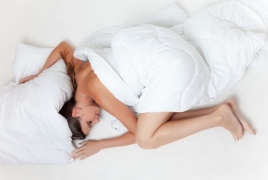
Smartphone sleep-tracking apps are making people so anxious and obsessed about their sleep that they are developing insomnia, a leading neurologist has said, according to The Guardian.
Speaking at the Cheltenham science festival, Dr Guy Leschziner, a sleep disorder specialist and consultant at Guy’s hospital in London, said a growing preoccupation with getting enough sleep was backfiring.
“We’ve seen a lot of people who have developed significant insomnia as a result of either sleep trackers or reading certain things about how devastating sleep deprivation is for you,” Leschziner said before his talk.
A high proportion of patients seeking treatment for insomnia turn up at his clinic with data about their sleep patterns and are often reluctant to delete the app, he said. “It’s rather difficult to dissuade them from using it.”
Most apps have not been clinically validated and only track movement, so do not provide insight into the quality of sleep, he added.
“My view of sleep trackers is fairly cynical. If you wake up feeling tired and you’ve had an unrefreshing night’s sleep then you know you’ve got a problem,” he said. “If you wake up every day and feel refreshed, are awake throughout the day and are ready to sleep at the same time every night then you’re probably getting enough sleep for you and you don’t need an app to tell you that.”
Similar concerns were highlighted in a series of case studies published last year by a team in Chicago that described patients whose micromanagement of sleep using apps had led to a disorder called orthosomnia.
Research shows that for most people the optimum amount of sleep is around eight hours, but this varies widely across the population. For people who naturally need less sleep, being alerted to the fact that they are not sleeping “enough” could result in the nocebo effect, where the expectation of negative symptoms leads to people actually feeling worse.

